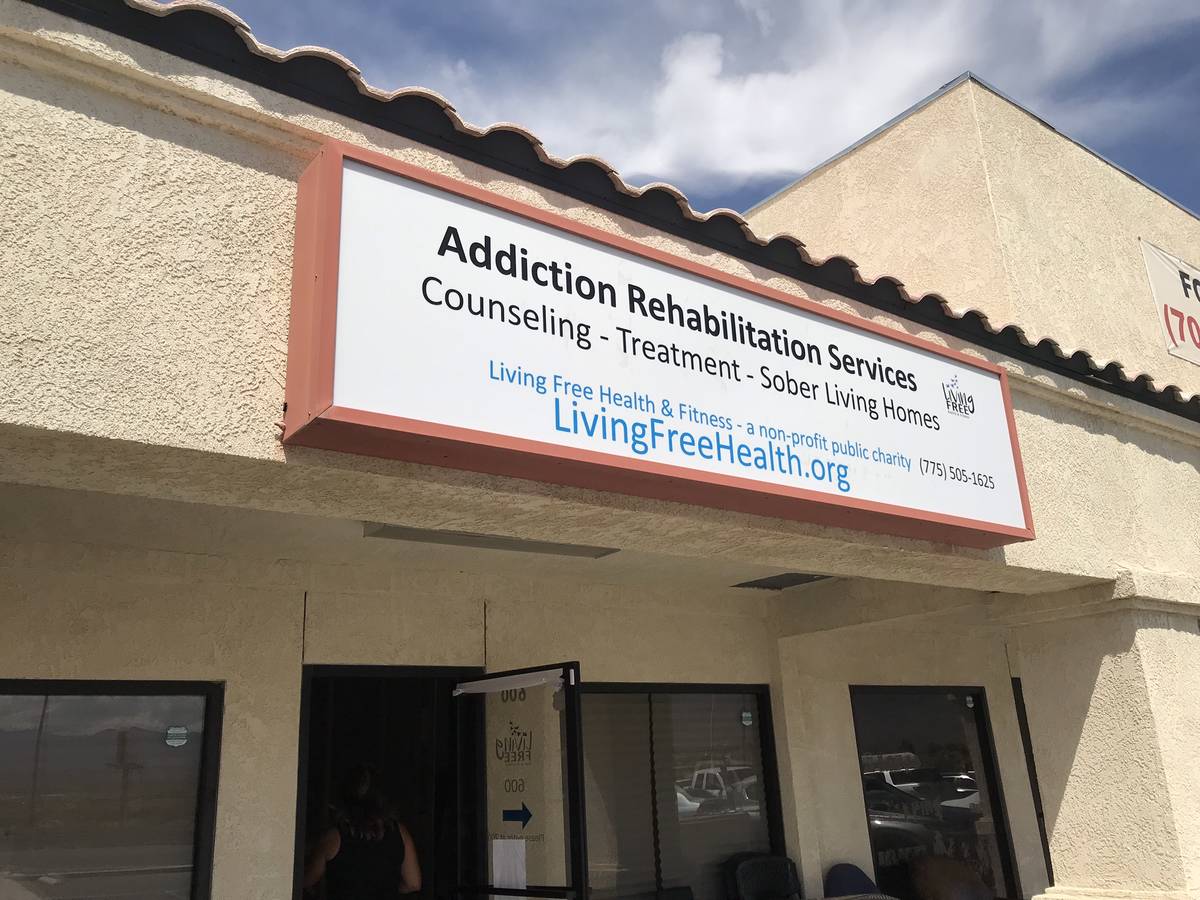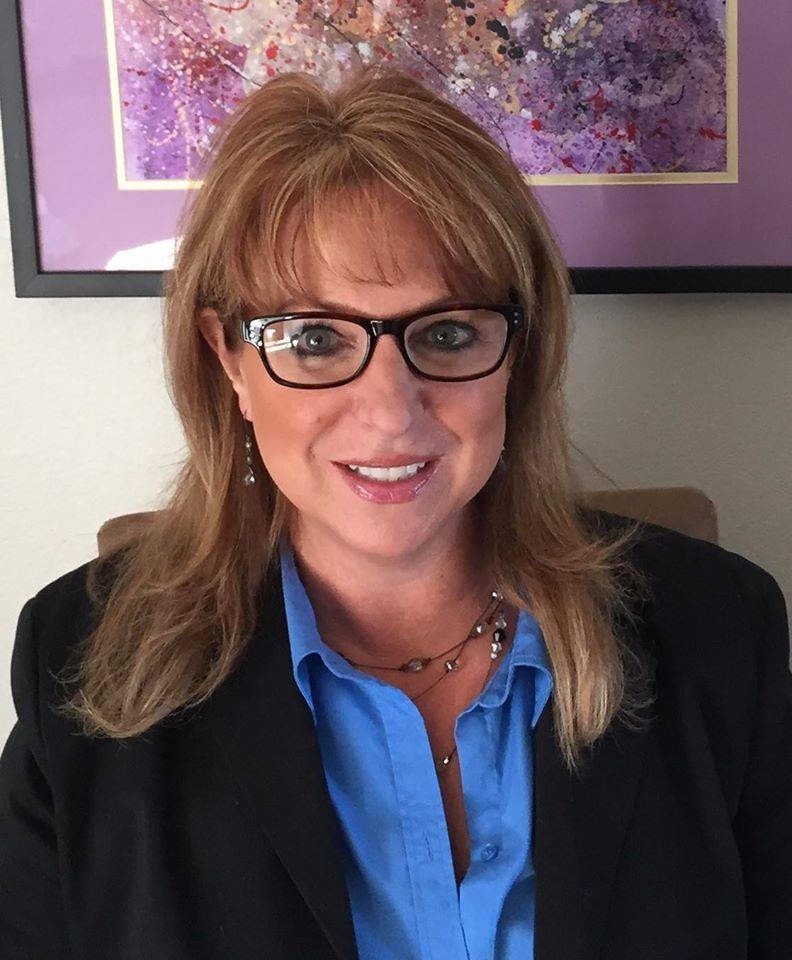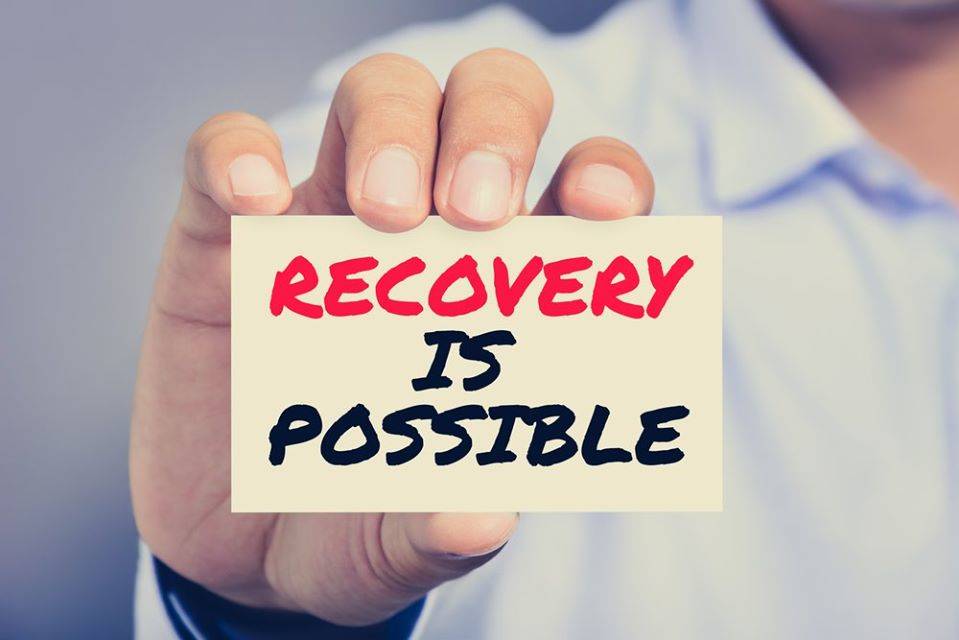Living Free aiming to keep recovering addicts connected amid COVID-19 crisis
“Your disease wants to kill you. It just has to get you alone first.”
It’s a quote Shelley Poerio’s sponsor told her many years ago as she was recovering from addiction. It’s always stuck with her and those words now resonate with startling clarity, given the enforced isolation being experienced all across America.
For many, isolation leads to anxiety, irritability, frustration, but for those who are battling addiction, it’s much more than mere irritation. It’s a potential risk for relapse and that’s precisely what Poerio and the team at Living Free Health and Fitness are striving to prevent.
Living Free is a local nonprofit organization that’s on a mission to help those suffering from the disease of addiction.
With the governor’s mandate to stay home and his decision to close all nonessential businesses in the state, many are feeling the pressure of being separated from others and some have no idea where to turn or which services are even available at this time.
If there is one thing Living Free’s services are not, it’s nonessential and the nonprofit is keeping its doors open throughout the COVID-19 crisis, so those working toward recovery don’t have to weather this storm alone. Treatment and therapy are extremely vital aspects of the recovery process and these cannot be put off, despite the worldwide pandemic. The need for these services is perhaps greater now than ever. Providing continued stability to its clients is absolutely imperative to the team at Living Free.
“Isolation is really one of the recovering addicts’ biggest enemies. And that is because, what’s really encouraged with 12-step meetings and treatments and talk therapy is sober social support. If you can’t be social and you can’t be around people, it makes things much more difficult,” Poerio detailed.
Isolation is both a sign of relapse and a potential trigger for a return to addictive behavior, depending on the circumstances. When a person in recovery begins to close themselves off from others and withdraw into themselves, it’s generally a sign that they are turning to their drug of choice again. With the entire state in something akin to a lockdown, however, the isolation isn’t internal, it’s external. The requirement to stay at home and avoid people can spark urges that for some can prompt reactions that in turn lead to relapse.
“This is a forced closing-off. That doesn’t mean everybody is going to relapse but I have already heard, in friends of mine who have a lot of sobriety, an increased level of agitation in their voice,” Poerio explained. “You’ve got two things going on, this addiction that is in remission, along with the stress of isolation, financial stress, the stress of uncertainty and fear about getting sick and what that might mean to them and their family. All of these kinds of things become social environmental stressors and when you don’t have anyone you can connect to, it makes it very hard. We’re social animals so isolating can lead to a lot of really bad things for people who have mental and substance use disorders.”
A solution to the problem of isolation? It’s simple, really: give people a place where they can practice social distancing and follow the CDC’s guidelines regarding COVID-19 while they also enjoy the comfort and connection of interacting with others in person.
“We are holding our 12-step meetings here in the office for those who feel comfortable with it and who are not sick and have not been around someone who is sick,” Poerio said of the organization’s current operation structure. “We ask people questions about any symptoms they might have, those questions are also posted on the door and if anyone has those symptoms, we ask them to not come in. We can set up a telehealth meeting with them.
“We have the floor marked out for social distancing as well, and bottles of bleach solution, a million rolls of paper towels, boxes of gloves, all of those supplies, with staff assigned to wiping down everything when people come in and wiping it down when they leave,” she continued. “We’re even going as far as pens, when people sign in for their groups or individual sessions, we’re following behind them with the bleach spray.”
Aside from individual and group treatment and therapy, Living Free offers a sober living program with separate homes for men and women. Knowing that the COVID-19 outbreak has taken an enormous toll on employment, with a staggering number of jobs lost in just a few weeks time and uncertainty as to when employment rates will bounce back, Poerio has made the decision to suspend all house fees for those residing in Living Free’s men’s and women’s sober living houses.
“I wanted people to not have to worry about house fees or total isolation, I want them to stay in recovery and stay connected,” Poerio stated.
Anyone in need of support during these trying times can contact Living Free by phone at 775-505-1625 or drop into the office, 2050 N. Highway 160, Suite 600, behind the Horizon Market located at the corner of Mesquite Avenue and Highway 160 in Pahrump.
A clinical assessment will be conducted, which determines if outpatient treatment with Living Free is appropriate. Discussion about utilizing the men’s or women’s sober living homes.
During the COVID-19 outbreak, the office hours have been adjusted. The office is open Tuesdays and Thursdays from 7:15 a.m. to 3 p.m., Mondays and Fridays from 7:15 a.m. to 6:30 p.m., Wednesdays from 7:15 a.m. to 5 p.m. and Saturdays from 9 a.m. to noon.
Poerio has put together a team of which she is extraordinarily proud and she made sure to emphasize how important the contributions of those people are to Living Free and the entire community.
Poerio herself, founder of Living Free, is a longtime clinician licensed and credentialed as an alcohol and drug counselor/supervisor, master addiction counselor and certified fitness trainer.
The Living Free board of directors includes president Rick Marshall, who is a former Nye County law enforcement officer; vice president Robert Saxen, a small business owner; board member Salli Kerr, who comes with five years of experience as an executive director and CEO in the nonprofit sector; board member Tony Cox, a retired physicist; and board member Mari Lynn Johnson, the vice president of her family-owned water treatment company. Treasurer Frank Troisi, U.S. Air Force, retired and owner of a property management business in Pahrump and secretary Dina Williamson-Erdag, a well-known community activist with countless hours spent helping numerous local causes, are also part of the board.
Business advisor Catherine “Casey” Jones comes with plenty of entrepreneurial experience, having been involved with seven start-ups in a variety of industries and consultant Willi Baer brings her vast experience heading nonprofit organizations, including Big Brothers Big Sisters of Nevada and Nye County’s Pioneer Territory CASA.
Psychiatrist Dr. Jerome Nwokike is the medical director for Living Free and Hannah Bradley, a licensed marriage and family therapist, is the clinical director. Clinicians include Debra Jentzsch, Zachary Gittings and Brian Nelson.
Demi Warrick is a peer recovery support specialist at Living Free and David Kidd handles administration and operations, while Cathy Swan takes the lead for billing. Kenneth Kline has now joined the team as the director of fitness programming and consultant Myron DeVoto provides his unique insights as well.
More on each of these team members, as well as Living Free as an organization, can be found online at www.livingfreehealth.org
Contact reporter Robin Hebrock at rhebrock@pvtimes.com



















